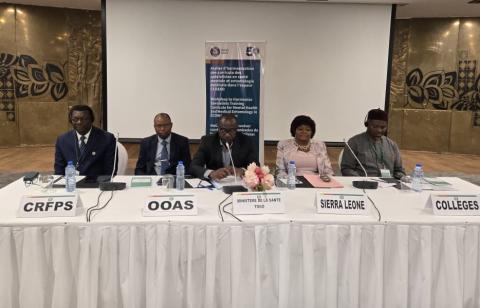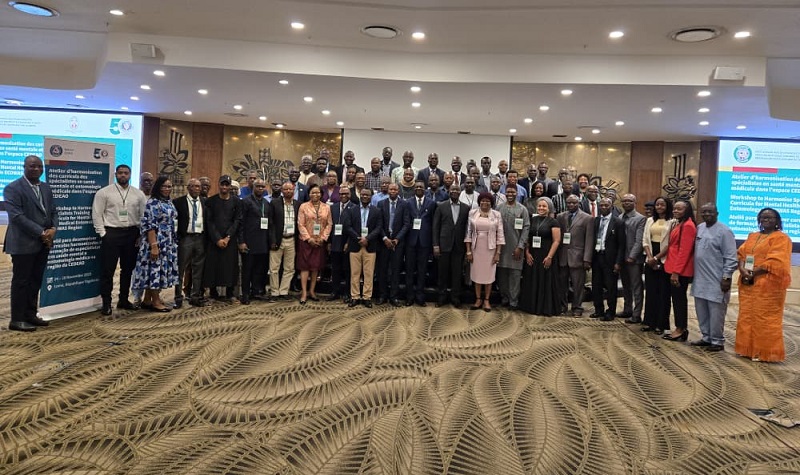
A five-day regional workshop to harmonise specialist training curricula in Mental Health and Medical Entomology for the ECOWAS region was officially opened on 24 November 2025 in Lomé, Togo. Organised by the West African Health Organisation (WAHO) from 24 to 28 November 2025, the workshop brings together experts, academics, professional bodies, regulators, and representatives of Member States to strengthen the quality and coherence of specialised health training across West Africa.
The opening ceremony was presided over by Dr Etoh Mawuli Gaga, representing the Secretary General of the Ministry of Health of Togo. In his remarks, he reaffirmed the commitment of the Togolese Government to improving the quality of health services. He emphasised that harmonising curricula is a strategic response to existing training gaps in mental health, medical entomology, and related areas, and will enhance the region’s ability to prevent, detect, and control priority diseases.
Speaking on behalf of the Chairman of ECOWAS, Dr Joan Shepherd, the representative of Sierra Leone underscored the significant burden of mental, neurological, and substance-use disorders, as well as the growing threat of vector-borne diseases. “A threat in one Member State is a threat to all,” she stated, urging experts to develop a curriculum that “will stand the test of time.” She further commended WAHO for its critical leadership in driving this transformative initiative.
Representing the West African professional colleges and training institutions, Dr Obioma Uchendu highlighted that mental health challenges and vector-borne diseases are intertwined issues that demand an integrated response. “This harmonisation ensures that whether a professional trains in Dakar, Accra, or Lagos, they emerge with comparable competencies and a shared understanding,” he said, noting the benefits for professional mobility and the consistent quality of care across the region.
On behalf of the Regional Council for the Training of Health Professionals, Prof Cyriaque Comlan Degbey stressed that curriculum harmonisation is a strategic undertaking. He outlined its objectives: “to ensure equal quality of training across ECOWAS, foster academic and professional mobility, facilitate the mutual recognition of skills, and build a health workforce capable of effectively responding to current and future challenges.”
The Representative of the Director General of WAHO, Prof Joseph Olorunda, drew attention to the severe gaps in mental health resources and the rising epidemiological threats posed by vector-borne diseases. He stressed the urgency of coordinated regional responses, improved surveillance, and specialised training to address challenges such as mental health stigma, insecticide resistance, and emerging disease vectors.
Throughout the week, experts will review, update, and harmonise training modules, competency frameworks, and teaching units.

